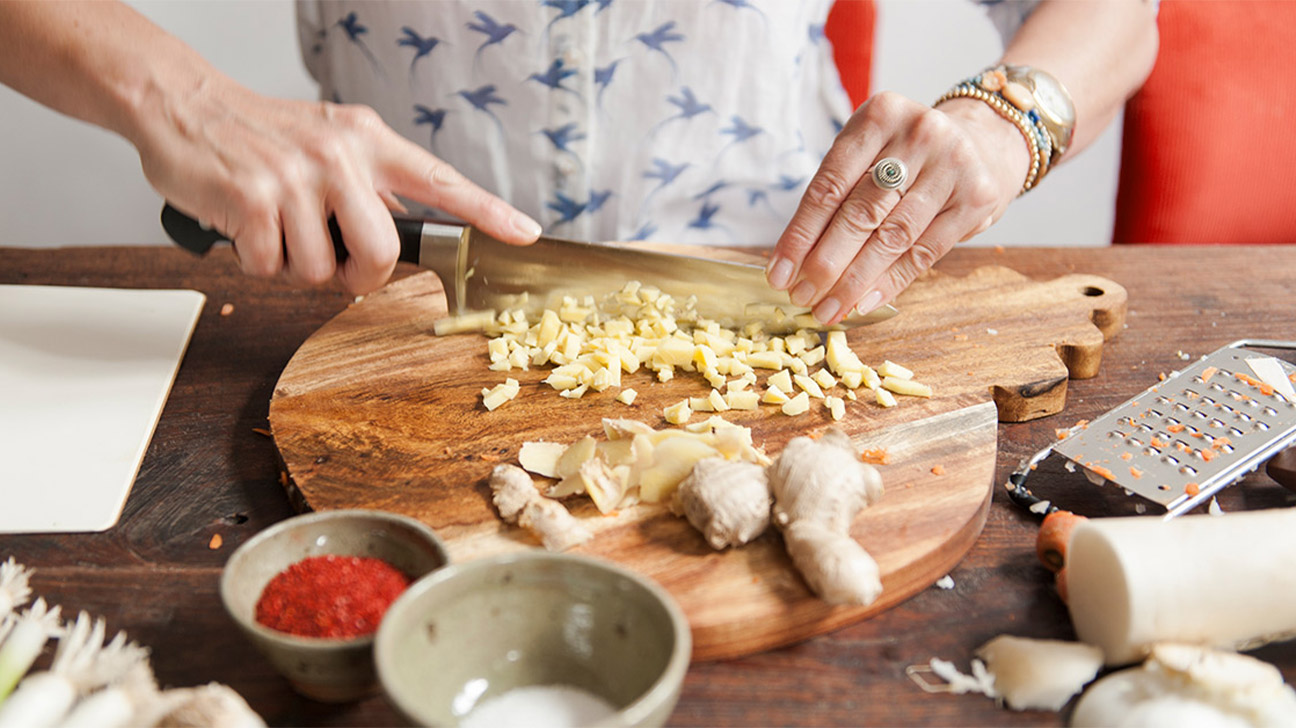The Health Benefits of Bitter Leaf

What are some of the touted health benefits of bitter leaf?
Bitter leaf juice is known to have nutritional and
therapeutic benefit which depends on its constituents for its efficiency when
consumed. In Nigeria, bitter leaf juice is prepared and consumed at room
temperature and elevated temperatures for treatment of malaria, reducing blood
sugar levels, as anti-oxidants, anti-bacterial and other numerous medicinal and
pharmaceutical properties.
Paradoxically, most of the nutrients, tend to be destroyed
in the cooking process. Usually, stews containing the leaves are cooked for
prolonged periods of time, partly to rid the leaves of the bitter taste, but in
so doing ruining the nutritional benefits. (So it’s best to steel yourself and
eat the leaf raw.) Read on for some of the claims of this magical leaf.
Contains lots of vitamins and minerals
According to a research article by Agbogidi, O.M. and
Akpomorine, M.O., bitter leaf are ‘exceptionally rich’ in proteins,
carotene, vitamin C and mineral elements including iron, phosphorus, calcium,
potassium, zinc, copper, folic acids and ascorbic acid’, making them ideal, in
the authors’ opinions for children and breastfeeding mothers.
Prevents heart attacks
Bitter leaf is a rich source of polyunsaturated fatty acids,
linoleic and linolenic acid. All of these polyunsaturated fatty acids are,
indeed, protective against cardiovascular disease; however, this in itself is
not enough to guard against heart attacks.
Helps reduce blood pressure
Saliu, JA, Ademiluyi, AO et al examined the antihypertensive
properties of bitter leaf; their results can be found in the Journal
of Food Biochemistry. The authors conclude that it does indeed have
antihypertensive properties (including high levels of potassium) which may be
exerted through ‘the inhibition of α‐amylase, α‐glucosidase
and ACE, coupled with the antioxidant activities.’ The
authors suggest that bitter leaf phenolic-rich extracts are a nutraceutical
option for managing hypertension.
Boosts your chances of getting pregnant
Word on the street is that consuming bitter leaf can boost
your chances of getting pregnant, but that same street wisdom also tells us
that eating too much bitter leaf can lead to miscarriage. Confused? Me too.
According to one
study conducted in rats, ‘…as antioxidants, the flavonoids and
vitamins in bitter leaf extract could maintain sperm morphology, sperm survival
and sperm function and therefore be regarded as a steady supply of additional
nutrients to the treated rats over the control groups’. The same study
references authors who have found that:
‘…treatment with antioxidants improves steroidogenesis by
enhancing the primary effect of Leydig cell endocrine function along with
increased circulatory testosterone production and stimulation of
spermatogenesis’.
Nutritionist Dr
Grace Johnson maintains that it can indeed boost fertility thanks to
its ability to stimulate the reproductive system, ‘balance hormones and help
the ovary to release healthy eggs’ per Guardian Nigeria.
Reduces fever
According to nutritionist Healthy
Lifestyle, the antiseptic in the bitter leaf can help to bring down a
fever:
‘The content of andrographolide lactones, glucosides,
diterpene, and flavonoids serve to reduce fever.’
Laboratory quantitative analysis of some physical properties
(pH, specific gravity and conductivity) and phytochemical components
(alkaloids, tannins, saponnins, flavonoids, terpenoids and phenols) were
carried out for bitter leaf juice samples heated within temperatures 40°C,
60°C, 80°C and 100°C and then compared to the quantitative analysis of the
bitter leaf extract sample at room temperature (25°C). The result showed a
significant reduction in the phytochemical constituents where alkaloids and
phenols reduces linearly with increasing temperature, tannins, saponnins,
flavonoids and terpenoids reduces with increasing temperature in
polynomial form of second order.
The pH and specific gravity also decreases as temperature
increases in polynomial form of second order while the conductivity increases
with increasing temperature. These change showed that the medicinal and
pharmaceutical properties of the juice and bitter taste decreases with
increasing heat. The bitter leaf juice becomes, more acidic, less dense than
water and more conducting at high temperatures. Thus, the juice prepared at
25°C is best suited for nutritional and therapeutic benefit and if heat is to
be applied to bitter leaf juice, the temperature 40°C is recommended since at
this temperature, the composition of the phytochemical and physiochemical
properties is not much different from that at 25°C.
Credit:
- Study on the Relation Patterns of Bitter leaf Juice Phytochemicals at Varying Temperature | Ketebu | International Journal of Progressive Sciences and Technologies
- The Health Benefits of Bitter Leaf - pan-African




Comments
Post a Comment